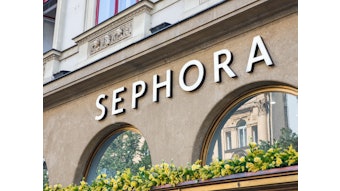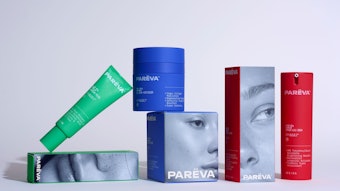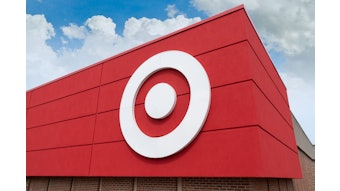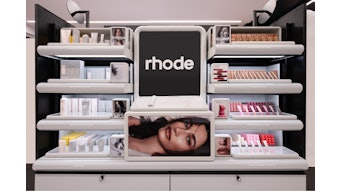While the recession may officially be over in many markets, brand owners are having to contend with a potentially long-term shift in consumer buying habits in mature regions toward mass retailers, according to Euromonitor International. Consumers became used to moderating their spending on beauty products during the recession, and, in many cases, are not prepared to return to previous levels of spending. Instead, many are preferring to spend more cautiously, and are taking pleasure in seeking out what they want to buy at the best available price, often using price comparison websites and shopping across channels in search of bargain prices. Many people have also become more willing to take a chance on less expensive brands in areas of beauty where they feel there will be no perceivable difference in quality.
Channel Trade Down Seems Set to Stay
Parapharmacies/drugstores were the main beneficiaries of the global recession as consumers traded down—in terms of both the beauty brands they bought and where they bought them. Sales through department stores took a hit, meaning that sales of premium beauty products also suffered due to lower footfall. This decrease in footfall in 'premium' specialist and department stores last year in favor of more mass-market outlets appears to be a long-term trend that has lasted beyond the recession, well into 2010.
Supermarkets/hypermarkets remains the retail channel that accounts for the highest proportion of beauty and personal care sales globally, and weathered the recession comparatively well. Footfall through the channel remained constant, as consumers still needed to buy essentials. Non-store channels also grew as a result of the trend for buying online in key regions such as Western Europe and North America, and a boom in direct selling in emerging regions like Latin America and Eastern Europe.
Retailers at both the top and bottom end of the price scale have adjusted their strategies in response to the consumer trend for shopping at lower-end retail outlets. Many drugstore chains are also expanding their beauty portfolios and introducing better merchandising and higher quality private label products, which is blurring the boundaries between typically mass and typically premium channels.
Premium Retailers Tap into Demand for Cheaper Outlets
In July 2010, U.K. beauty specialist retailer The Perfume Shop, which primarily sells premium-priced fragrances, launched a series of 'stores within store' at U.K. drugstore chain Superdrug. This marks The Perfume Shop's attempt to tap into the stronger footfall of the more 'mass' drugstore channel. According to the company, “The initiative will enable the fragrance retailer to expand its network and customer base.”
German beauty specialist retailer Douglas began retailing a range of private label beauty products in January 2010. German consumers are notoriously price-conscious, and the move was aimed at winning back customers who had moved away from 'premium' beauty stores during the recession. The retailer has said its goal is to make roughly 20% of its income from private label products by the end of 2012.
Many mass retailers have expanded their beauty ranges to attract consumers who had cut down on shopping elsewhere. U.K. retailers Asda and Tesco have both recently stepped up their presence in the beauty category, particularly in discretionary categories such as color cosmetics and fragrances, as these were segments that were hit hardest by the lower footfall in higher-end channels and were previously underrepresented in supermarket outlets. Tesco opened a beauty 'shop in shop' in its Extra stores, and shortly thereafter also a dedicated area selling fragrances, while Asda also expanded its range of scents.
The U.S.-based hypermarket Target has adjusted its product range in 2010 in response to the higher footfall through the retailing channel. It has begun selling more upmarket beauty brands such as the premium-priced color cosmetics range Pixi. As U.S. consumers neglected 'premium' retail channels during the recession and beyond, this was a valuable way for the brand to continue to be able to reach consumers.
Some Premium Beauty Brands Target Mass Channels
Many brand owners used to selling their products in higher-end channels have been reluctant to simply sell their products in mass channels for fear of devaluing their brand image. One such brand that has taken that step was the color cosmetics brand Hard Candy, which recently took the decision to stop selling the range through the perfumery Sephora, and instead switched to selling it in the U.S. hypermarket chain WalMart. In addition, the brand also lowered the price of the range when it made the transition. The range continues to sell well through WalMart so the tactic seems to have paid off (Editor's note: more information on WalMart's impact is available through a study conducted by The Benchmarking Company).
In targeting the Chinese market, Shiseido launched its DQ brand in March 2010 in Chinese drugstores. This marks a definite shift away from the company's strategy in most developed markets where its brands are primarily premium and retail through 'premium' channels like department stores. Although sales of premium beauty and personal care products are thriving in China and disposable incomes are on the rise, consumers in China are still relatively poor when compared with their counterparts in Japan. Shiseido's mass channel focus will have far greater appeal to a wider consumer base than it would otherwise have done retailing through premium channels.
Premium-priced hair care brands in the U.S. are targeting mass distribution outlets. Alberto Culver has repositioned Nexxus as a higher-priced mass drugstore brand, having previously been a salon hair care brand. In 2010, Frédéric Fekkai has brought out the Fekkai Classic hair care range to retail through mass channels. The range, which has a lower price point than the company's other brands, was immediately withdrawn from sale by the beauty specialist retailer Sephora following the announcement that the brand would retail in mass channels.
Outlook: Mass Channels to Continue to Outperform Premium Channels
Department stores are set to see a slight return to positive growth by 2011, but overall value sales through mass channels will continue to thrive at the expense of more typical 'premium' channels. Despite this, fear of brand devaluation should stop an influx of premium brands retailing in mass channels. Retailers adapting to the changes in consumer shopping habits should be more prevalent, however.
Carrie Lennard is a beauty and personal care analyst at Euromonitor International. Euromonitor has recently released Lennard's "Beauty and Personal Care: Entering the New Media Market" video presentation. Among the notable brands reaching out to consumers with new media highlighted in the presentation:
- Estée Lauder acquiring Smashbox, a beauty company which retails primarily online;
- L'Oréal sponsoring beauty and personal care celebrity Lauren Luke;
- Many brands starting their own video tutorials on Youtube and Facebook; and
- Brands selling directly to consumers through e-stores.










